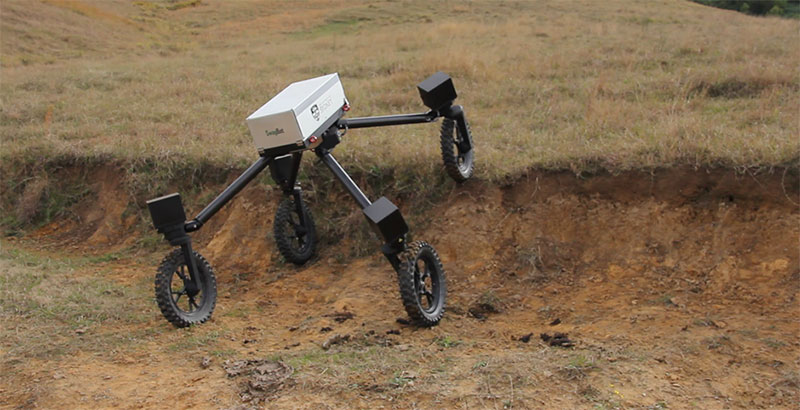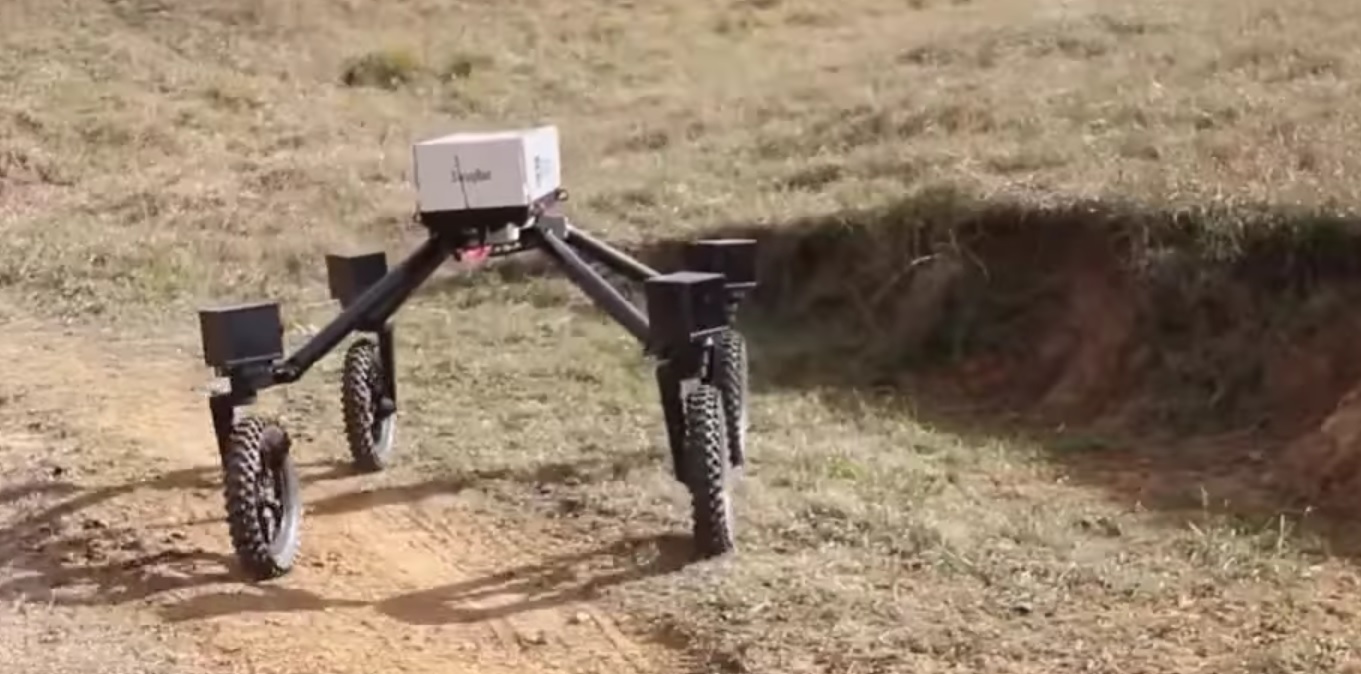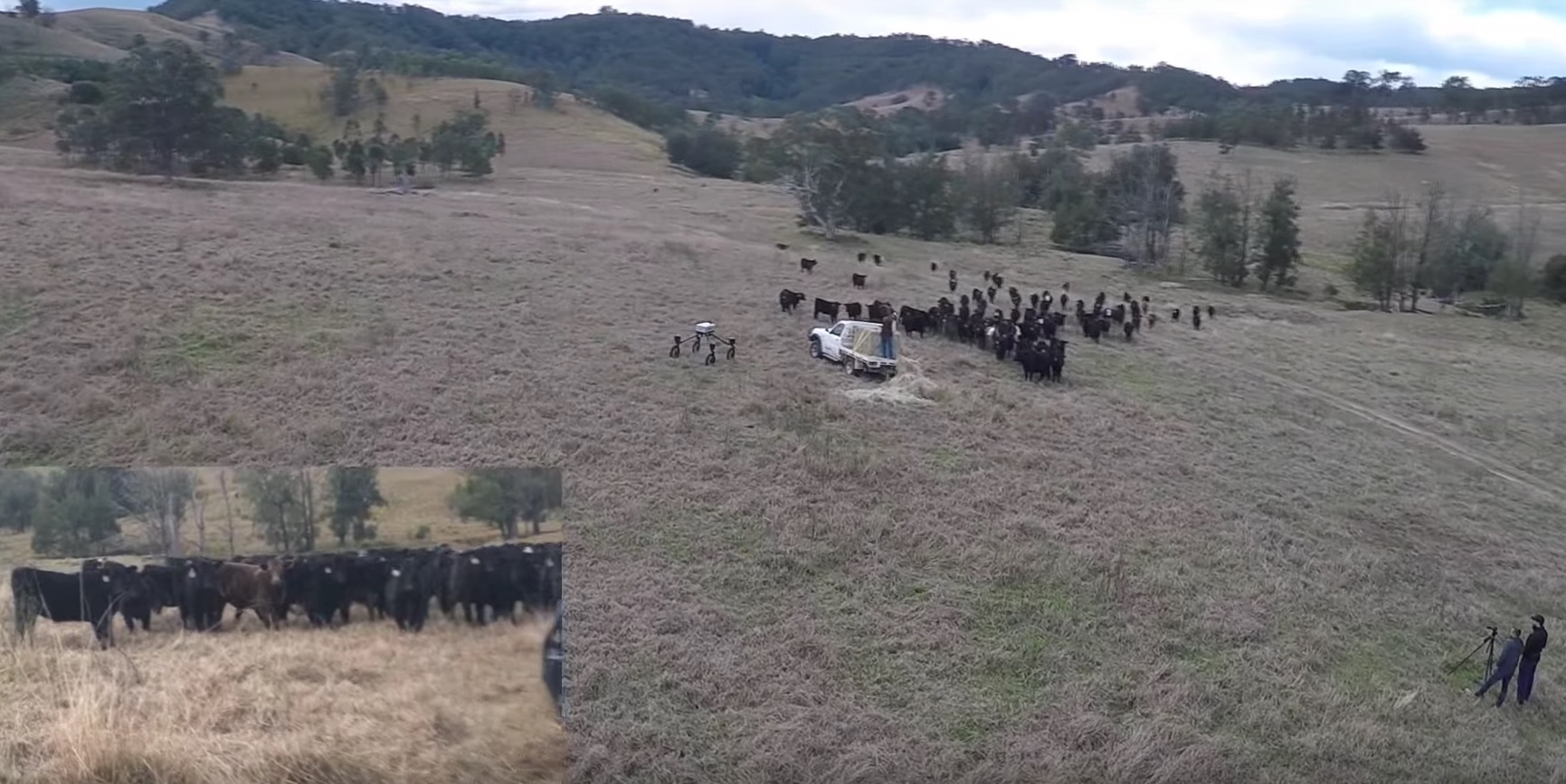
The trusty farm sheepdog may soon be out of work as a new robot developed in Australia can herd cattle, check on crops, tow heavy trailers and manoeuvre around tough landscapes.
Meet SwagBot, designed by the Australian Centre for Field Robotics and the University of Sydney.
The team have released a video showing the robot helping farmers around sheep and cattle stations that are often remote.

It can also work with drones to survey a farm's terrain from above and send data back to the farmers.
The drones could also be used to help the robot find the best route for passing rough by giving it a bird's eye view.

The next step will be to teach the robot how to identify animals that are sick or injured, says Salah Sukkarieh of the University of Sydney, who is leading the trial.
"We've done a preliminary trial with farmers; we've done things such as being able to tow trailers, monitor animals from a distance, go through waterways," Sukkarieh said.
"Ultimately we want a robot that can monitor the farm continuously and more importantly look at animal welfare.
"It will measure the temperature of an animal from a distance and be able to measure the walking activity of an animal, to see if something is going on."
So far SwagBot can only be remote controlled, the next step will involve fitting various sensors and adding software on-board so the robot can do the tasks autonomously, says Mark Calleija, a technical officer at the Australian Centre for Field Robotics.
"After this we will look at environment interaction such as weeding."
The SwagBot team is currently one year into a three-year project, and will use upcoming field tests to further develop the machine's autonomy.
